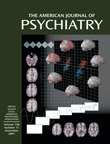Shortened Duration of Untreated First Episode of Psychosis: Changes in Patient Characteristics at Treatment
Abstract
OBJECTIVE: This study examined whether duration of untreated psychosis can be shortened in patients with first episodes of DSM-IV schizophrenia spectrum disorders and whether shorted duration alters patient appearance at treatment. METHOD: Two study groups were ascertained in the same Norwegian health care sector: one from 1993–1994 with usual detection methods and one from 1997–1998 with early detection strategies that included education about psychosis. RESULTS: Patients with early detection had a shorter median duration of untreated psychosis by 21.5 weeks than patients with usual detection. The number with psychosis was greater in the early detection group; the number with schizophrenia was less. Early detection patients had more substance abuse and were younger, better adjusted premorbidly, and less ill. CONCLUSIONS: Early detection can shorten duration of untreated psychosis and help more patients when they are less severely ill. Given the devastation of psychosis, this is a significant treatment advance.



